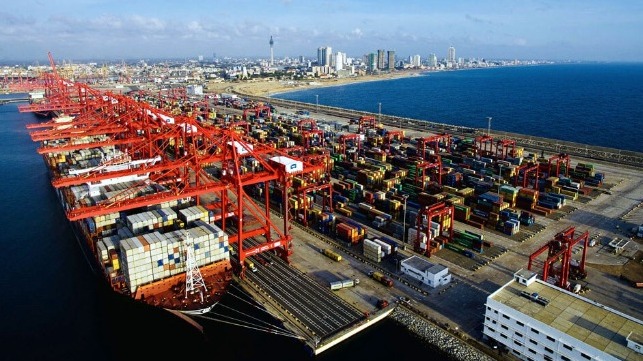China Bags Another Lucrative Port Deal in Sri Lanka

China has made further inroads in Sri Lanka’s maritime sector with the award of a lucrative port deal to one of its state-owned enterprises.
On Tuesday, Sri Lanka’s cabinet approved a contract award to China Harbour Engineering Company (CHEC) for construction of the second phase of Colombo Port’s East Container Terminal (ECT).
Under the Sri Lankan government’s original plans, ECT was to be developed jointly with India and Japan under the terms of a 2019 tripartite agreement. However, Colombo canceled the agreement earlier this year, alleging that the Indian firm involved in the project refused to agree on terms of service.
Under the tripartite agreement, investors from Japan and India would have had a 49 percent stake in ECT while the state-owned Sri Lanka Ports Authority would have retained 51 percent. The Colombo port trade unions were opposed to this arrangement, claiming it would amount to a sell-out of the ECT.
Meanwhile, in the new deal with CHEC, the strategic port terminal will be “totally operated” by the Sri Lanka Port Authority, according to a statement by Department of Government Information.
One of the deliverables for CHEC will be to construct an additional 700-meter long quay wall and infrastructure around it, estimated to cost at least $700 million.
CHEC, a subsidiary of China Communications Construction Company already has other ongoing projects in Sri Lanka, among them the proposed $1 billion Colombo Port City in the Galle Face neighborhood.

that matters most
Get the latest maritime news delivered to your inbox daily.
The ECT contract marks another milestone in China’s continued influence over infrastructure development in the island nation of Sri Lanka. Chinese firms already hold majority stakes at the southern port of Hambantota, as well as Colombo’s International Container Terminal at Colombo Port.
Some commentators view Chinese influence as part of the reason why Japan and India were edged out in negotiations over ECT. The two countries had expressed displeasure in the manner in which ECT’s tendering process was being conducted.
